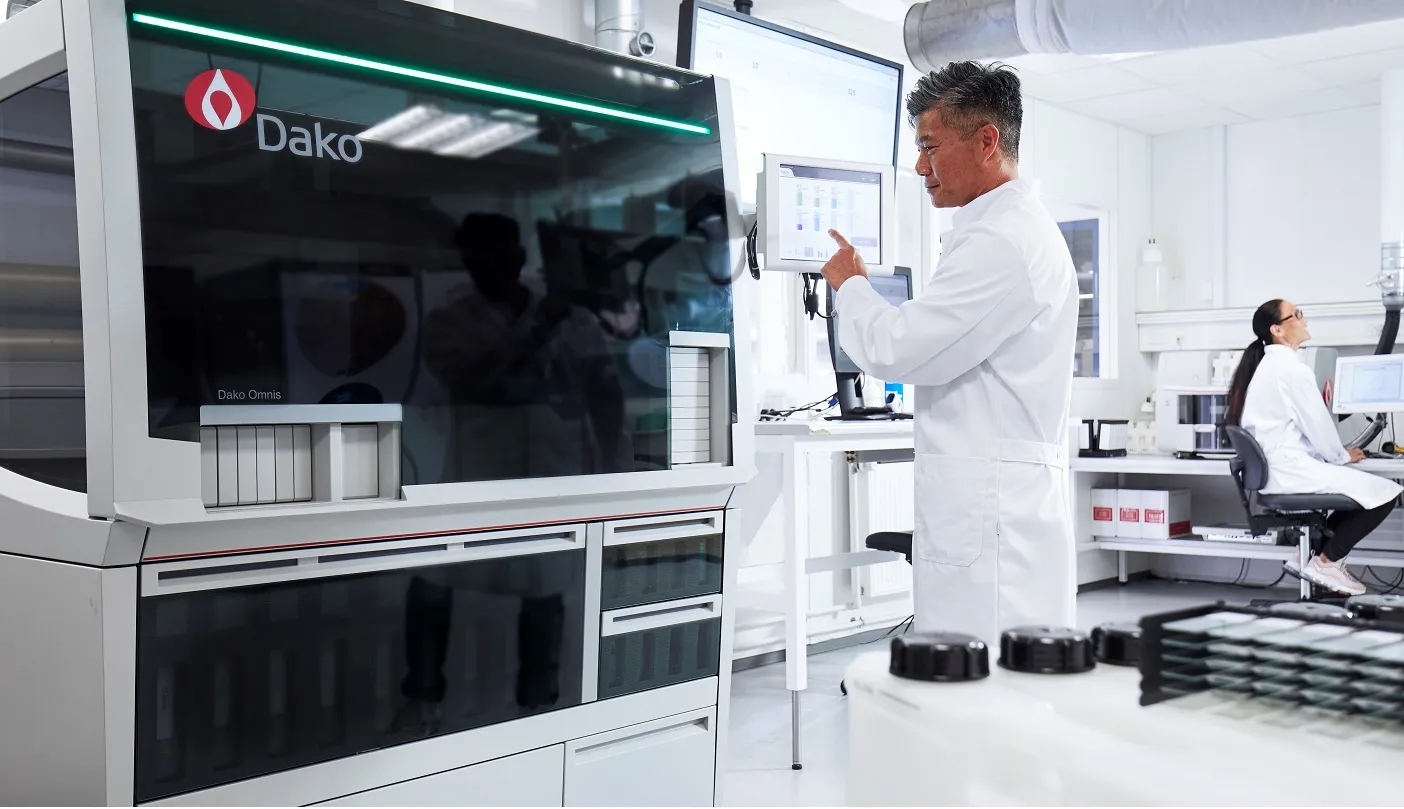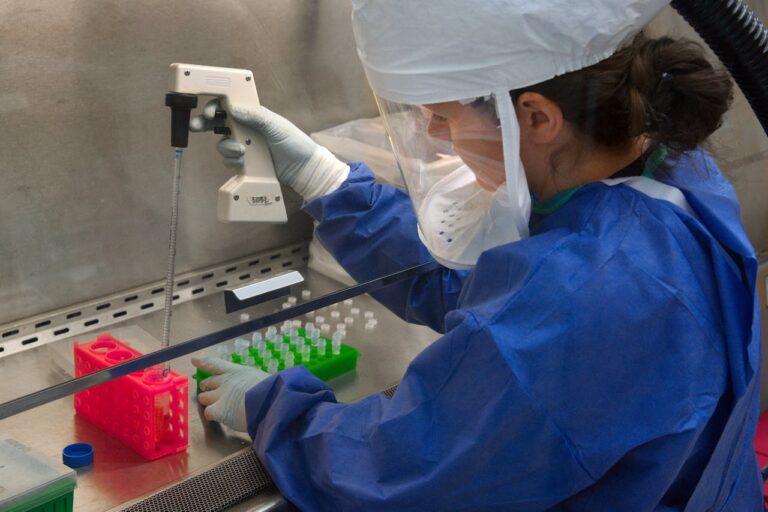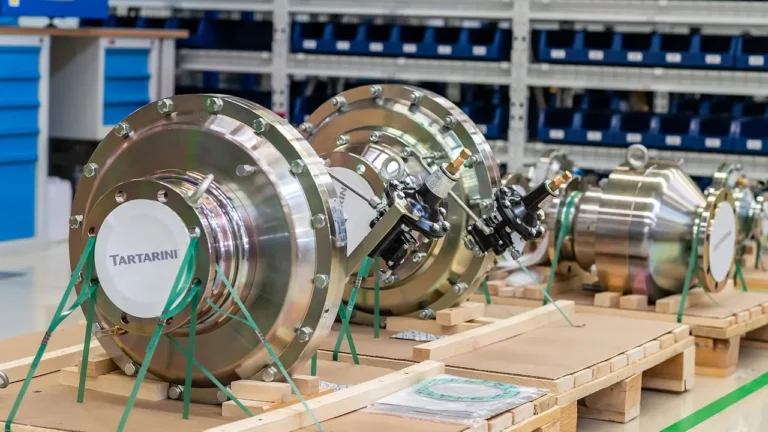
Agilent Technologies and Ubix Therapeutics Forge Strategic Collaboration to Propel Advanced Cancer Research in South Korea
In a significant move to accelerate innovation in cancer therapeutics, Agilent Technologies has officially entered into a Memorandum of Understanding (MOU) with Ubix Therapeutics, a cutting-edge biotechnology company specializing in targeted protein degradation (TPD) therapies. This collaboration aims to drive forward the research and development of highly targeted cancer treatments in South Korea over the next five years, reinforcing both companies’ shared commitment to advancing precision oncology.
Addressing Unmet Needs in Cancer Treatment through Innovative Modalities
The global burden of cancer remains a formidable challenge, with current therapeutic options often falling short in addressing complex and previously undruggable targets. Precision medicine, which tailors treatments to the specific genetic and molecular profiles of individual patients, has emerged as a promising solution. Among the various modalities gaining traction, targeted protein degradation (TPD) and antibody-drug conjugates (ADC) have surfaced as particularly compelling approaches.
Under the newly signed MOU, Agilent and Ubix Therapeutics will join forces to conduct joint research focused on the development of TPD and ADC therapies. Central to this collaboration is the integration of Ubix’s proprietary Degraducer® platform, a pioneering anti-cancer drug technology that employs novel E3 ligase binders to target and degrade disease-related proteins. By harnessing this platform, the partnership aims to develop therapies that can effectively address targets previously considered “undruggable” by conventional small molecules.
In parallel, Agilent Technologies will contribute its extensive cancer research and technological expertise, including advanced analytical platforms and workflow solutions designed to accelerate drug discovery and development processes. Together, the companies seek to create safer, more effective treatments that improve patient outcomes while pushing the boundaries of modern oncology.
The Rise of Targeted Protein Degradation and ADC in Precision Oncology
Targeted protein degradation represents a paradigm shift in drug discovery. Unlike traditional inhibitors that merely block the activity of disease-causing proteins, TPD strategies aim to eliminate these proteins from cells altogether by leveraging the ubiquitin-proteasome pathway (UPP). This approach not only enhances specificity but also expands therapeutic options to include proteins previously deemed unreachable.
Similarly, antibody-drug conjugates (ADCs)—which combine the targeting capability of monoclonal antibodies with potent cytotoxic agents—offer a powerful method for selectively killing cancer cells while sparing healthy tissue. Both TPD and ADC technologies are at the forefront of precision oncology, capturing the attention of biopharma companies worldwide.
Industry analysts estimate that the global TPD market could reach approximately US$4.37 billion by 2034, reflecting a robust compound annual growth rate (CAGR). The accelerating interest in TPD stems from its potential to unlock new therapeutic spaces, address unmet clinical needs, and overcome resistance mechanisms often encountered with conventional treatments.
Synergizing Strengths: Ubix’s Degraducer® Platform Meets Agilent’s Analytical Excellence
The partnership between Agilent and Ubix Therapeutics is founded on a synergistic combination of strengths. Ubix’s Degraducer® platform distinguishes itself through its ability to develop novel E3 ligase binders, which play a crucial role in directing targeted proteins toward degradation. This innovative technology provides a versatile and highly specific approach to drug development, opening avenues for tackling a broad range of oncogenic targets.
Agilent Technologies, on the other hand, brings to the table a comprehensive suite of analytical tools and bioinformatics solutions. Key technologies that will be instrumental in this collaboration include:
- InfinityLab Bio LC portfolio: High-performance liquid chromatography systems designed for the rigorous demands of biopharmaceutical analysis.
- LC/MS systems (Liquid Chromatography-Mass Spectrometry): Essential for precise identification, quantification, and characterization of biomolecules.
- BioTek product families: Innovative microplate readers, washers, and imaging systems that support cellular and molecular assays critical to drug development.
By integrating these capabilities, the collaboration aims to streamline the development of analytical methods and workflows tailored to advancing TPD and ADC research. The ultimate goal is to expedite the translation of laboratory discoveries into clinical applications, thereby accelerating the delivery of novel cancer therapies to patients.
Executive Perspectives: Driving Innovation through Strategic Collaboration
The announcement of the partnership was met with enthusiasm from both organizations’ leadership, underscoring the strategic importance of the collaboration.
Seo Bo-Kwang, CEO of Ubix Therapeutics, commented on the significance of the partnership, stating:
“We are excited to collaborate with Agilent Technologies, whose leadership in biopharma and pharmaceutical innovation will strengthen Ubix Therapeutics’ efforts to deliver next-generation therapies. By leveraging Agilent’s advanced analytical and diagnostic platforms, we aim to accelerate development and bring transformative solutions to patients worldwide.”
You Jae Soo, South Korea Country General Manager at Agilent Technologies, echoed this sentiment, emphasizing Agilent’s ongoing commitment to supporting biomedical advancements in South Korea:
“We are proud to continue strengthening Agilent’s ongoing commitment to research, contributing to South Korea’s biomedical advancement and supporting our customer’s ambitious plan to bolster transformative cancer therapy globally. This partnership further demonstrates the confidence local companies place in our industry-leading scientific capabilities to bring great science to life.”
A Legacy of Commitment: Agilent’s Investment in South Korea’s Biotech Ecosystem
This collaboration with Ubix Therapeutics is a natural extension of Agilent’s long-standing investment in South Korea’s biotechnology and life sciences sector. With a presence spanning over 25 years, Agilent has steadily expanded its footprint in the country, now employing approximately 400 highly skilled scientists, engineers, and professionals.
One of the cornerstones of Agilent’s presence in South Korea is its Centre of Excellence Analytical Lab in Seoul, which serves as a hub for innovation, collaboration, and technical support. Through this facility, Agilent has established strong partnerships with leading universities, research institutions, biomedical companies, and start-ups.
Notably, Agilent’s recent partnerships include collaborations with:
- GI Innovation: Focused on biomarker testing for the immune-anticancer drug GI-101, supporting the development of immuno-oncology therapies.
- Theragen Bio: Working together to advance bioinformatics solutions for cancer genomic profiling, enabling more precise and personalized treatment strategies.
These initiatives highlight Agilent’s strategic vision of fostering a robust and dynamic biotech ecosystem in South Korea, while simultaneously contributing to global efforts in precision medicine and oncology research.
The Broader Implications: South Korea as a Rising Hub for Cancer Research
South Korea’s burgeoning biotech sector has increasingly positioned the country as a key player in the global life sciences arena. With strong government support, world-class research institutions, and a growing number of innovative biotech companies, South Korea offers a fertile ground for advancing cutting-edge cancer research.
Collaborations such as the one between Agilent Technologies and Ubix Therapeutics are emblematic of this trend, showcasing how strategic partnerships can bridge technological expertise with novel therapeutic platforms. By fostering such alliances, South Korea continues to strengthen its position as a hub for biomedical innovation, attracting global attention and investment.
Paving the Way for Next-Generation Cancer Therapies
The strategic collaboration between Agilent and Ubix Therapeutics is poised to yield significant advancements in the development of targeted cancer therapies. By combining Ubix’s groundbreaking Degraducer® technology with Agilent’s state-of-the-art analytical and diagnostic platforms, the partnership seeks to accelerate the discovery and commercialization of therapies that can address some of the most challenging targets in oncology.
In the coming years, the joint efforts of these two companies will focus on:
- Expanding the pipeline of TPD and ADC candidates.
- Refining analytical methods to enhance research efficiency.
- Facilitating preclinical and clinical development processes.
- Supporting regulatory pathways to bring new therapies to market.
As the global fight against cancer continues, collaborations that leverage complementary strengths and shared visions are essential to driving meaningful progress. The Agilent-Ubix partnership not only represents a significant milestone for both companies but also holds the promise of delivering transformative solutions to cancer patients in South Korea and beyond.




